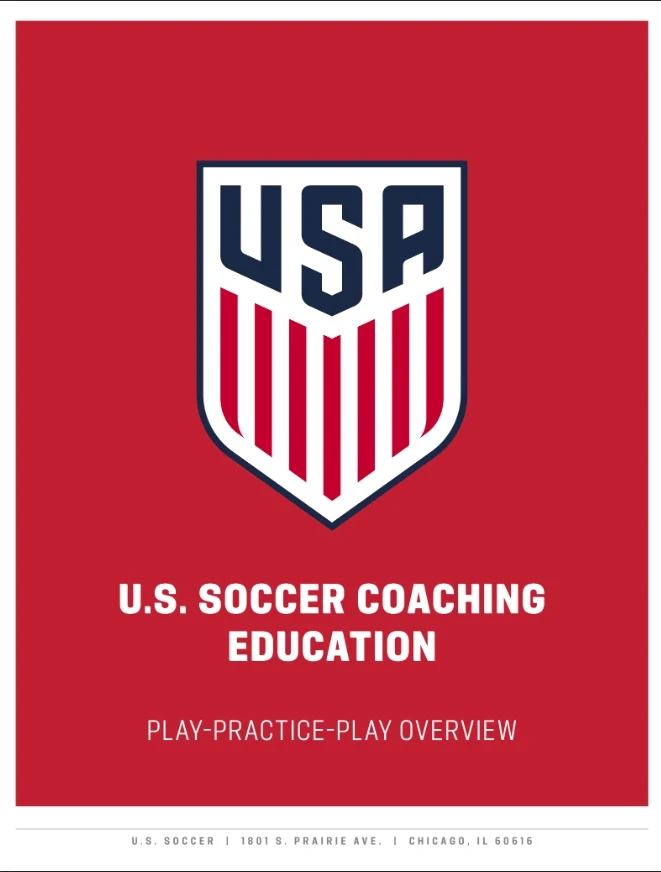U.S. SOCCER COACHING EDUCATION PDF
U.S. Soccer developed and implemented the Play-Practice-Play methodology at the Grassroots level.
Researched and developed by technical leaders, this player-centered approach allows coaches of all levels to help create training environments to fulfill the two basic needs of players of all ages:
to have fun and to develop! The game of soccer is very unpredictable and free-flowing.
It’s constantly changing between the moments of attacking, defending, and both transitional moments in between.
Each of the three phases of Play-Practice-Play replicates those moments and are easy for the coach to implement.
The environment provides players with what they like and with what they need to analyze the game, make decisions, be creative with their own solutions, and to ultimately become independent, critical thinkers.
U.S. SOCCER GRASSROOTS PLAYER DEVELOPMENT PHILOSOPHY At the grassroots level, children learn and develop to their full potential through game-like experiences in an enjoyable environment which supports individual growth.
As children arrive at practice, they immediately start playing small games (2v2, 3v3, or 4v4, or a game with unequal numbers based on the available number of players).
The coach’s priorities during the first play phase are to welcome the players, ensure safety, and observe/monitor their behaviors while PLAYING.
There is an intention within this first phase based on the training session goal that the coach has selected prior to the session; the coach has an influence by using teaching actions, such as positive specific praise, key words, and asking guided questions.
These teaching actions help plant seeds for players to think about the goal while experiencing the fun of a small-sided game and to learn by making decisions, creating their own solutions, and solving the problems that the game presents.
Empirical data has shown that children learn best when they experience periods of play in a safe environment where they can experiment and make decisions.
The goal of this phase is to get players excited about training and primed to learn about today’s training-session goal based on a real context that they have just experienced.


Post a Comment